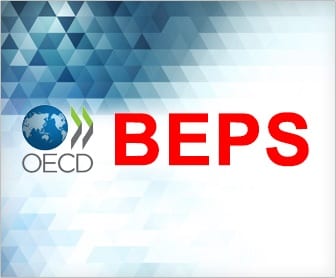
The OECD/G20 BEPS Project provides governments with solutions for closing the gaps in existing international rules that allow corporate profits to be artificially shifted to low/no tax environments, where little or no economic activity takes place.
Following delivery of the BEPS measures to G20 Leaders during their annual summit on 15-16 November in Antalya, Turkey, the focus will shift to designing and putting in place an inclusive framework for monitoring BEPS and supporting implementation of the measures, with all interested countries and jurisdictions invited to participate on an equal footing.
The final package of BEPS measures:
- A. includes new minimum standards (“must do” measures) on:
- Country-by-country reporting (CbCR), to give tax administrations a global picture of the operations of multinational enterprises
- Treaty shopping, to put an end to the use of conduit companies to channel investments
- Curbing harmful tax practices, in particular in the area of intellectual property and through automatic exchange of tax rulings
- Effective mutual agreement procedures (MAPs), to ensure that the fight against double non-taxation does not result in double taxation
Australia has already introduced CbCR into domestic law. Our treaty shopping measures will over time converge with global best practice via tax treaties or the multilateral instrument. Australia does not have undue harmful tax practices. The measures to address the backlog related to MAPs are welcome.
B. revises the guidance on:
- The application of transfer pricing rules to prevent taxpayers from using so-called “cash box” entities to shelter profits in low or no-tax jurisdictions, and
- Redefines the key concept of PE, to curb arrangements which avoid the creation of a taxable presence in a country by reliance on an outdated definition.
- Australia’s transfer pricing law refers to the 2010 TP guidelines and other changes may be required to domestic law over time to assure that transfer pricing outcomes are in line with value creation but this will not be done without detailed consultation. PE rules to attack commissionaire structures and remove the preparatory and auxiliary threshold will proceed in the multilateral instrument. PE income-attribution rules will be updated in 2016 and implementation will be via multilateral instrument.
C. “offers governments a series of new measures to be implemented through domestic law changes”, including:
- Strengthened rules on CFC
- A common approach to limiting base erosion through interest deductibility
- New rules to prevent hybrid mismatch arrangements from making profits disappear for tax purposes through the use of complex financial instruments.
These are best practice rules NOT expressed to be mandatory. The CFC package is the “most optional” reflecting the unlikely changes in Europe and the US in the short to medium term. On interest deductibility, Australia’s combination of strong thin cap and transfer pricing rules should allow Australia to respond in a measured way – expect something from Treasury that our thin cap rules align pretty well with the OECD proposals. On the hybrid changes, detailed consultation through the Board of Taxation is already underway.
Nearly 90 countries are working together on the development of a multilateral instrument capable of incorporating the tax treaty-related BEPS measures into the existing network of bilateral treaties. The instrument will be open for signature by all interested countries in 2016.
Revenue losses from BEPS are conservatively estimated at USD 100-240 billion annually, or anywhere from 4-10% of global corporate income tax (CIT) revenues. Given developing countries’ greater reliance on CIT revenues as a percentage of tax revenue, the impact of BEPS on these countries is particularly significant.
Disclaimer: The information on this page is for general information purposes only and is not specific to any particular person or situation. There are many factors that may affect your particular circumstances. We advise that you contact Mathews Tax Lawyers before making any decisions.
